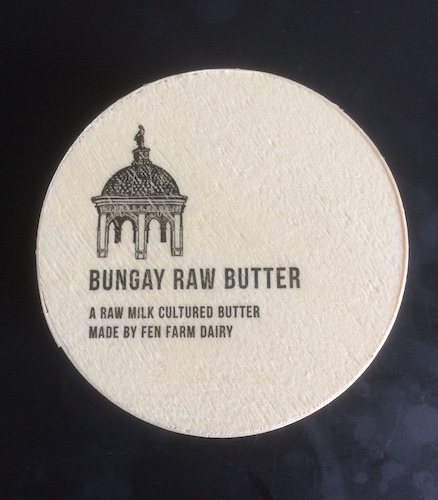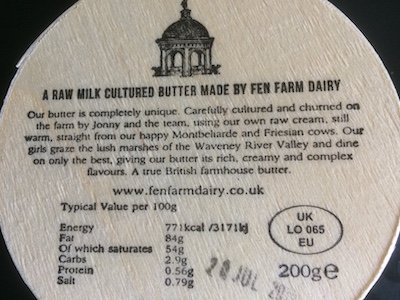Grass-fed, raw, with “all-natural” fermented health benefits, produced with artisanship, authenticity and provenance, Fen Farm Dairy’s “Bungay Raw Butter” scores top marks on the food and health trends that are most important to the thinking consumer.

Making money from selling milk is a desperately tough business. Most consumers don’t know that when they buy cheap milk in the supermarket, the farmer and the processor may be making a profit margin of barely 1%, or even losing money on every bottle.
Rather than fight the losing battle in the supermarket, Fen Farm focuses on telling the world that it’s a family business, located in the rustic Waveney Valley in the rural east of England. It talks about its cows and about the benefit of raw milk, which is the farm’s specialism: “Drinking raw milk straight from the farm and as fresh from milking as you can possibly get it, will ensure you get the full complement of vitamins, digestive enzymes and health benefits.”
The company puts its butter in the context of a 300-year-old local tradition of butter-making. Bungay Raw Butter is “the UK’s only raw farmhouse butter produced by using a lactic culture. It is made by hand on the farm in the traditional way, by souring the cream using a cocktail of lactic bacteria.”

And there’s more reassurance about quality, artisanship and provenance: “We use the milk warm from milking and our grass-fed cows are an ancient breed, Montbeliarde, hand-picked by Jonny from small farms in the Jura region of France. They only give a small amount of milk but it is rich and high in protein, producing beautifully creamy and complex flavours. A true farmhouse butter.”
This type of artisanal production had almost disappeared 20 years ago, but it is staging a steady come-back. The future of food production may look like this – smaller businesses, family-owned, focused on natural advantages. And not just in dairy. If it can work in a brutally tough commodity business like dairy, it can work in any category.

